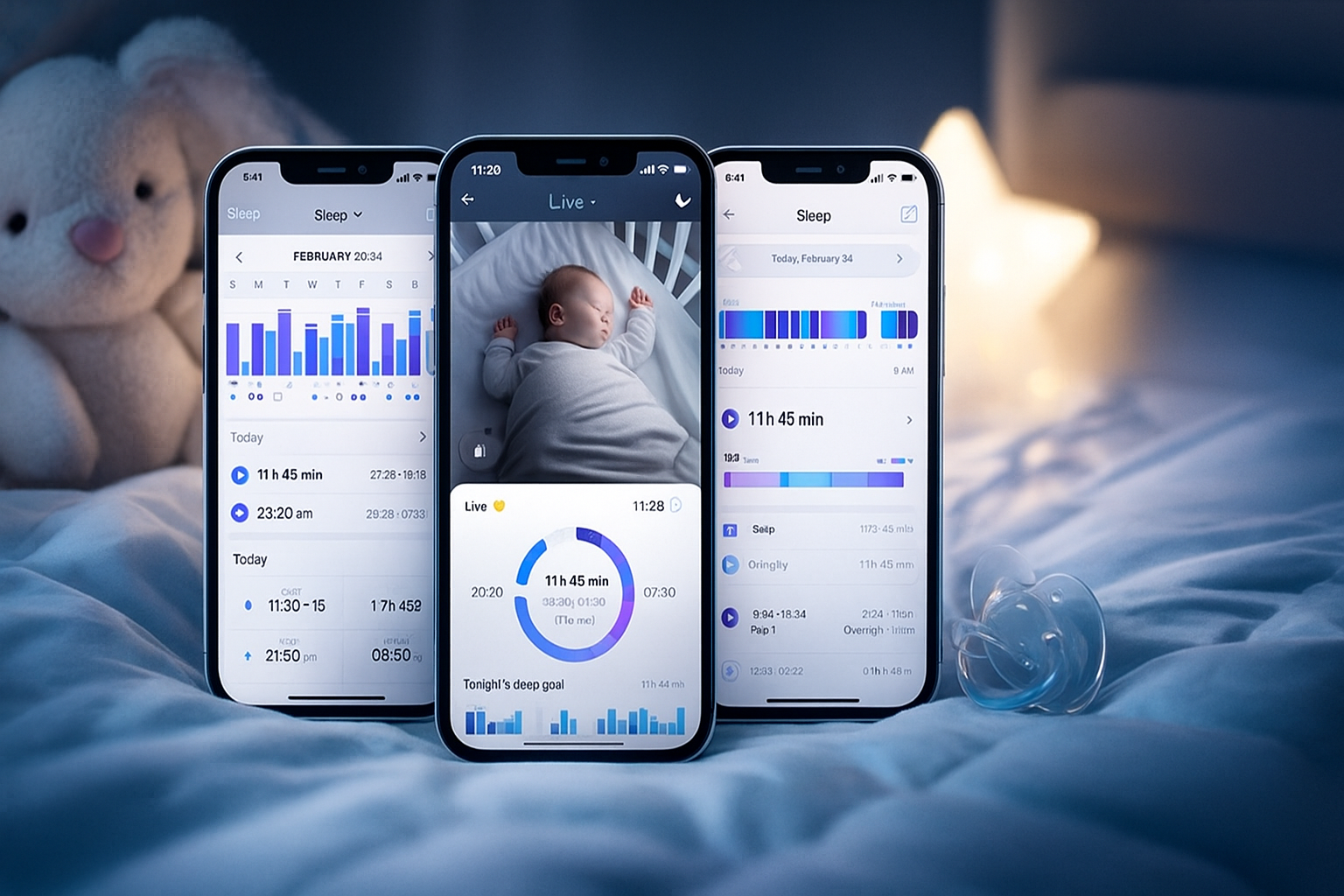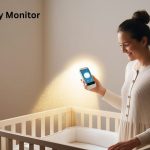“Sleep when the baby sleeps.” — the most repeated (and least realistic) parenting advice ever.
If you’re a new parent, you already know—baby sleep is like a puzzle with missing pieces. Some nights they snooze like angels, other nights it feels like they’ve joined a secret baby rave. Desperate for answers, many parents turn to sleep-tracking apps. But do they actually work, or are they just another thing cluttering your phone?
I remember obsessively logging every nap, convinced an app would magically unlock the secret to better nights. Spoiler: it didn’t make my baby sleep through the night, but it did help me understand her sleep patterns better. And that’s where the real value lies.
How Sleep Tracking Apps Work
Most apps let you log naps, bedtime, wake-ups, and sometimes even night feeds. Some connect with wearables or smart monitors to track sleep automatically. Over time, they generate patterns and insights—like noticing your baby naps longer if bedtime is earlier.
Popular options include:
- Huckleberry – Combines logs with AI-based nap predictions.
- Baby Connect – All-in-one tracking for feeds, diapers, and sleep.
- Owlet Dream App – Pairs with smart monitors for real-time insights.
- Glow Baby – Tracks sleep, milestones, and growth in one place.
The Benefits
- Pattern Recognition: Helps you notice what’s working (and what isn’t).
- Peace of Mind: Especially for first-time parents who want reassurance.
- Doctor Visits: Handy charts to share with pediatricians.
- Routine Building: Helps create consistency around naps and bedtime.
It’s less about “fixing” sleep and more about helping parents make informed adjustments.
The Limitations
Here’s the hard truth: no app can make your baby sleep through the night. Babies wake for many reasons—growth spurts, teething, or just needing comfort. Over-tracking can also fuel anxiety, leaving parents obsessing over every 20-minute nap.
One mom shared: “I realized I was spending more time staring at sleep charts than actually resting myself.” Balance is key.
When Sleep Tracking Helps Most
- If your baby struggles with consistent naps.
- If you’re troubleshooting bedtime battles.
- If you want data to share with your pediatrician.
But if your baby is thriving and you’re not stressed, you don’t need to track every blink. Sometimes, trusting instincts is the best sleep strategy.
Practical Tips
- Use tracking apps as guides, not rigid rules.
- Don’t compare your baby’s charts with others. Every child is unique.
- Focus on overall well-being (happy baby, happy parent) more than perfect graphs.
The Big Picture
Sleep tracking apps don’t hold a magic solution, but they do give parents clarity in the chaos. They turn sleepless nights into patterns you can understand, helping you feel a little less helpless and a little more in control.
End Note
At the end of the day, babies will always surprise us. Apps can guide and reassure, but they’re not replacements for cuddles, rocking chairs, or instinct.
So, if a sleep tracker helps you feel calmer, use it guilt-free. If it stresses you out, delete it without regret. Because in parenting, peace of mind matters as much as sleep itself.











